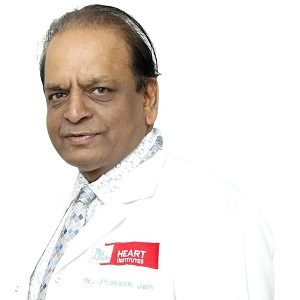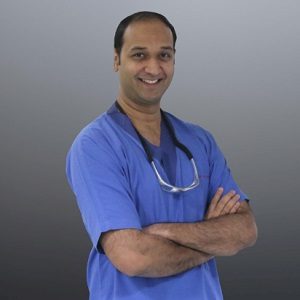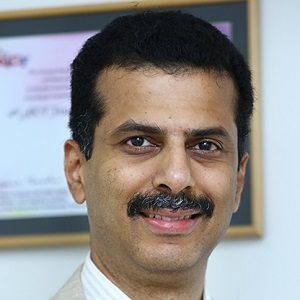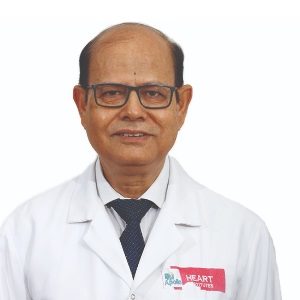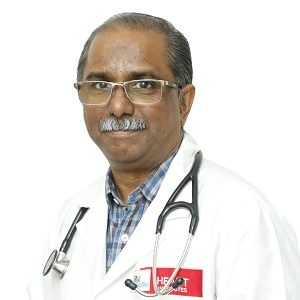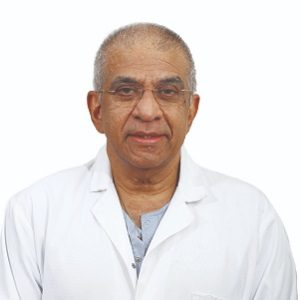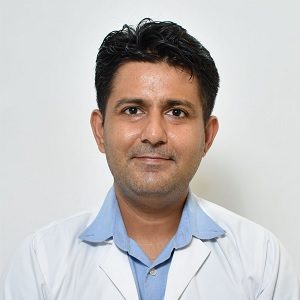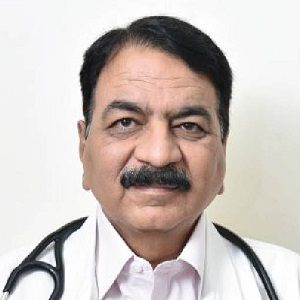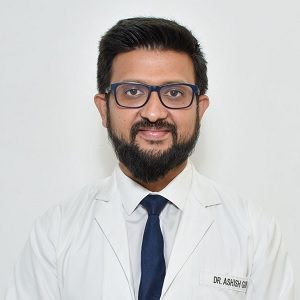Best ECMO Doctors in India
- Interventional Cardiologist, Chennai, India
- Over 25 years’ experience
Profile Highlights:
- Dr. Prakash Chand Jain is a renowned name among cardiology experts.
- Dr. Jain specializes in Transesophageal Echocardiogram, Atrial Fibrillation, Permanent Pacemaker, and Angioplasty.
- With his 25+ years of experience, he benefitted patients from counseling, diagnosis, and treatment. Some services he offers include TMT, Ambulatory BP Monitoring, MPI Test, PET scan, Valve Repair Replacement, ASD closure, etc.
- Interventional Cardiologist, Chennai, India
- Over 15 years’ experience
Profile Highlights:
- Dr. Sai Satish is an internationally celebrated young cardiologist from Tamil Nadu with expertise in the management of heart-related problems.
- With 15+ years of experience, he assisted patients with symptomatic Aortic stenosis, blood vessel blockages, and heart failure.
- He started a series of structural heart programs for those who are executing structural heart therapies and need to advance them with the best practices. The summit drew over 300 heart surgeons and 350 cardiologists.
- Interventional Cardiologist, Chennai, India
- Over 31 years’ experience
Profile Highlights:
- Dr. G Sengottuvelu is an accomplished Interventional Cardiologist in Chennai.
- He is an expert at managing complex PCI & stenting surgeries and structural heart interventions, including percutaneous heart valve replacement & repair (TAVI / TAVR, mitral clip, etc.).
- Dr. Sengottuvelu carried out around 20000 procedures in his 25 years career. He was a pioneer of the transcatheter valve program in the Apollo Group of Hospitals in 2015, performing the first TAVR.
- Cardiac Surgeon, Cardiothoracic Surgeon, Vascular Surgeon, Chennai, India
- Over 35 years’ experience
Profile Highlights:
- Dr. Dillip Kumar Mishra is a well-known and experienced Cardiothoracic Surgeon in Chennai who has completed 35 years of specialized experience.
- The doctor gained experience working overseas in countries like Italy, Saudi Arabia, Bangladesh-Dhaka, and India.
- The doctor offers the best services to the patients, some of the prominent services include Intra – Arterial Thrombolysis, Mitral/Heart Valve Replacement, Cardio-Thoracic Surgery, bypass surgery, Radial Approach Angiography Balloon Mitral Valvuloplasty, etc.
- Cardiologist, Chennai, India
- Over 23 years’ experience
Profile Highlights:
- Dr. Pramod Kumar is a leading Cardiologist in Chennai with over 23 years of expertise.
- Dr. Pramod has completed his CT coronary angio-procedures training at UCLA in Los Angeles.
- To date, Dr. Pramod Kumar has completed over 1500 TEE & 7500+ interventional cardiology surgeries with a high success rate.
- His core areas of interest include interventional cardiology echocardiography and heart failure treatment.
- Cardiologist, Chennai, India
- Over 35 years’ experience
Profile Highlights:
- Dr. Robert Mao is a renowned cardiac surgeon in Chennai having managed heart diseases for more than 35 years.
- He provides consultation and various diagnostic tests. Some procedures and tests he performs include Angiogram, Open Heart Surgery, TMT, Color Doppler ECG, Vascular Surgery, Mitral/Heart Valve Replacement Aortic Aneurysm Surgery, etc.
- Cardiac Surgeon, Cardiothoracic Surgeon, Vascular Surgeon, Chennai, India
- Over 31 years’ experience
Profile Highlights:
- Dr. Vijay Shankar S is a senior cardio-thoracic Surgeon in Chennai having experience of more than 30 years in Cardiac Surgery.
- Dr. Vijay Shankar was a fellow Coronary Artery Surgery and Congenital Heart Surgery at the University of Wisconsin, USA.
- He provides consultation and diagnostic services for Mitral/Heart Valve Replacement, Cardiac Pacing, Invasive Cardiology, ABPM, Balloon Mitral Valvuloplasty, CT Angiography, etc.
- Cardiologist, Gurugram, India
- Over 15 years’ experience
Profile Highlights:
- Dr. Anurag Passi is a young cardiologist in Gurugram and is well-known for his meticulousness, precise diagnosis, and compassionate care of patients.
- He is proficient in performing procedures like Primary Angioplasty, Transradial Intervention, Pacemaker, ICD and CRT implantation, and Complex coronary interventions (Unprotected Left Main, Bifurcation, and CTO).
- Presently, he is practicing as a Senior Consultant of Cardiology at Fortis Memorial Research Institute in Gurugram.
- Cardiologist, Gurugram, India
- Over 24 years’ experience
Profile Highlights:
- Dr. (Col) B Kalra is one of the best cardiologists in Gurugram, with nearly two decades of experience in Cardiology.
- Due to different pieces of training, Dr. Balbir Kalra has accomplished expertise in Clinical, Invasive, and Non-Invasive Cardiology.
- Cardiologist, Gurugram, India
- Over 15 years’ experience
Profile Highlights:
- Dr. Ashish Gupta is a renowned cardiologist in Gurugram with expertise in noninvasive and interventional cardiac procedures.
- He performed several life-saving primary angioplasties in acute heart attacks, complex heart interventions, and ICD/ CRT/ pacemaker implantations with a high success rate.
- Some of the services available with the doctor include PET scan, Nuclear Thallium Test, TMT, Holter monitoring, echocardiography, etc.
Best ECMO Hospitals in India
Extracorporeal Membrane Oxygenation (ECMO)
ECMO or extracorporeal membrane oxygenation involves pumping the blood outside from your body into a heart-lung machine. The machine removes carbon dioxide and pumps back oxygen-filled blood into your body tissues. The flow of the blood is from the right side of your heart to the membrane oxygenator of the heart-lung machine that rewards and sends it back to your body. The procedure allows the organs to rest and heal while the blood bypasses your heart and your lungs. Usually used in infants with critical disorders of the heart and the lungs, you may also find its use for some other infections.
The method involves the use of a membrane oxygenator (acting as an artificial lung) that oxygenates the blood. It supplies oxygen to the blood and returns it to your body by combining with a warmer and a filter. Used for providing oxygenation while your doctor treats the disorder, it also benefits adults and older children.
Types and parts of ECMO
ECMO is of two types:
- Veno-venous ECMO (VV ECMO)- It takes blood from the veins and returns the blood to the vein. This type of ECMO finds its application in supporting lung function.
- Veno-arterial ECMO (VA ECMO)- It takes up the blood from one of the veins and returns the blood back to the artery. It supports the lungs as well as your heart. Being more invasive than veno-venous ECMO, there might be a need to close off the carotid artery (carotid artery is the main artery that extends from the heart to the brain).
Parts of ECMO include:
- Cannulae- They are large tubes (catheters) that your doctor will insert into your blood vessels for taking up and returning the blood back to the body.
- Membrane oxygenator- Used for oxygenating the blood, it is an artificial lung.
- Warmer and filter- Its purpose is to warm and filter your blood before the cannulae or catheters return the blood back to your body.
The cannulae take up blood with less oxygen from your body and send it to the oxygenator during ECMO. The membrane oxygenator will then pump oxygen into your blood and send this oxygenated blood through the warmer & filter to finally return the blood to your body.
Reasons for ECMO
ECMO is for the people suffering from critically ill conditions of the heart and the lungs or recovering from a heart transplant and when other life support procedures didn’t work. If you are suffering from serious but reversible lung or heart disorders, then your doctor will place you on ECMO. For the newborns, it is beneficial as it allows their heart and lungs to develop. There is a substantial increase in the survival rates with ECMO. It helps your body by providing oxygen to your body tissues. You may need to go for ECMO during conditions enlisted here.
For infants:
- ARDS (Acute Respiratory Distress Syndrome)
- Congenital diaphragmatic hernia (if there is a defect in the diaphragm)
- Pulmonary hypertension (high blood pressure present in the lungs)
- Respiratory failure
- Sepsis (an infection that can be life-threatening)
- Pneumonia
For older children:
- Severe pneumonia
- Cardiac surgery
- Toxic materials present in the lungs because of aspiration
- Infections
- Trauma
- Asthma
- Congenital heart defects
For adults:
- Decompensated cardiomyopathy (heart muscle disease)
- Severe hypothermia (low body temperature)
- Acute myocardial infection (heart attack)
- Carcinogenic shock (shock caused when the heart is unable to pump enough blood)
- Myocarditis (presence of inflammation in the muscles of the heart)
- Post-transplant complications
- Pulmonary embolism (blockage in the pulmonary artery of the lungs)
- Hantavirus pulmonary syndrome
- Influenza (flu)
Preparation for ECMO
Your doctor will first check you before placing you on ECMO. He or she will perform a cranial ultrasound of your brain to ensure that there’s no bleeding. It will also determine if your heart is working. You might need to undergo a chest x-ray daily while on ECMO. Your doctor will prepare the equipment after determining if you need ECMO. A trained team will perform your ECMO. The team will include respiratory therapists, ICU registered nurses, consultants & support personnel, rehab specialists, perfusionists who specialize in performing ECMO and a 24/7 transport team.
What to expect?
During ECMO
During ECMO, your doctor will first discuss all the details of the procedure with you and/or your family. Your doctor will place the cannulae in your chest, neck or groin region depending on your age after giving you general anesthesia (sleep medicine). You will be sleeping due to the sedation while being on ECMO. ECMO will perform the function of the lungs or heart. Your doctor will monitor you closely during ECMO with the help of daily X-rays. Apart from this, the doctor will also be monitoring your:
- Blood pressure
- Heart rate
- Oxygen levels
- Respiratory rate
With the help of a ventilator and a breathing tube, your lungs will continue to work and remove the secretions from your body. You will continuously receive all the medications through intravenous catheters including heparin. Heparin prevents the clotting of blood while it travels during ECMO as it is a blood thinner. Your doctor will place you on ECMO for a minimum of three days to even a month, depending on your condition. However, the higher you are on ECMO, the higher is the risk associated with ECMO.
After ECMO
After noticing the improvements in your condition, your doctor will slowly reduce the amount of oxygenated blood that you receive through the ECMO and then wean you off from ECMO. Once you get off from this, your doctor will place you on a ventilator for a certain period of time. However, you will still require a regular follow-up for monitoring the underlying condition.
Results of ECMO
Risks of ECMO
The most common risks associated with ECMO are:
- Coagulopathy (blood clotting disorder)
- Seizures
- Bleeding
- Infection
- Stroke (damage to the brain because of the bursting of blood vessels or blood loss)
- Thromboembolism (blood clot)
- Limb ischemia (loss of blood in the limbs)

